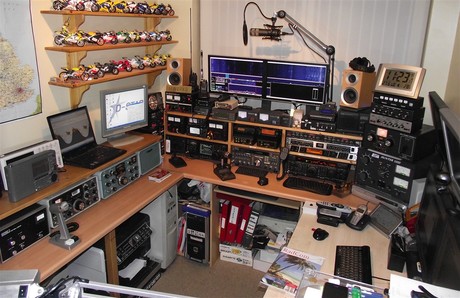US amateurs fail in bid to change regs

The FCC has dashed the hopes of two US amateur radio operators who wanted to have changes made to operator licences.
The first petitioner, James Whedbee, had asked the FCC “to reduce the number of amateur radio operator classes to Technician, General, and Amateur Extra, to merge into the Technician class all Novice class operators, to merge into the Amateur Extra class all Advanced class operators, to establish the procedures governing such mergers, and for related purposes”.
The second, Jeffrey Siegell, had a similar request — that the commission amend part 97 to grant Advanced Class licence holders Morse code operating privileges equal to those of Amateur Extra Class licensees.
In a ruling issued by Scot Stone, deputy chief of the FCC’s Wireless Telecommunications Bureau, Mobility Division, the commission chose to dismiss both applications. Here is the ruling:
“Among the principles underlying part 97 of the Commission’s rules are the ‘[c]ontinuation and extension of the amateur’s proven ability to contribute to the advancement of the radio art’ and the ‘[e]ncouragement and improvement of the amateur service through rules which provide for advancing skills in both the communication and technical phases of the art.’
“Licenses to operate amateur stations are granted to individuals by the Commission once applicants demonstrate an understanding of both pertinent FCC regulations and adequate knowledge of radio station operations and safety considerations.
“In 1999, the Commission streamlined its amateur licensing system into three classes: Technician, General, and Amateur Extra. New licenses are no longer issued for the discontinued Novice and Advanced classes, but existing licenses can be renewed.
“The Commission concluded that the three-class structure would streamline the licensing process while still providing an incentive for licensees to advance their communication and technical skills. It specifically rejected suggestions that Novice and Advanced class licensees be automatically upgraded to a higher class, concluding that it would be inappropriate for these licensees to ‘receive additional privileges without passing the required examinations elements’.
“In 2005, the Commission denied another request that Novice and Advanced class licensees be automatically upgraded, again concluding that it was not be in the public interest to grant these licensees privileges that they could obtain by passing the examination elements for the higher license classes.
“Your petitions essentially urge the Commission to afford Novice and Advanced class operator licenses the operating privileges of, respectively, General and Amateur Extra Class operator licenses. Holders of discontinued licenses would thereby achieve an upgrade to the next higher class without having to pass the requisite examination element for the higher class.
“The Commission has rejected this idea, and your petitions do not demonstrate or even suggest that any relevant circumstances have changed that would merit reconsideration of those decisions.
“Based on our review of the record, we are not persuaded that your petitions disclose sufficient grounds for the requested rule changes. Mr. Whedbee argues that automatically upgrading licensees in the discontinued classes would simplify the rules and reduce the Commission’s administrative burdens and costs, but he provides no evidence to suggest that an administrative problem even exists.
“Moreover, such benefits would not outweigh the public interest in ensuring that amateur operators have the requisite incentive to advance their skill and technical knowledge in order to contribute to the advancement of the radio art and improvement of the amateur radio service.
“The Commission has already concluded that it will not automatically grant additional privileges to the discontinued license classes. Consequently, we conclude that the above-referenced petitions for rulemaking do not warrant further consideration at this time.”
RFUANZ report: setting the frequency for success in 2025
Last year brought a lot of internal change for RFUANZ, but the association has hit the ground...
ARCIA update: an extended event calendar for 2025
With the addition of Tasmanian events and a conference in Adelaide in September, 2025 will see...
ARCIA update: plans for 2025
ARCIA will be holding a mixture of workshop, conference and networking events in 2025, in the...





